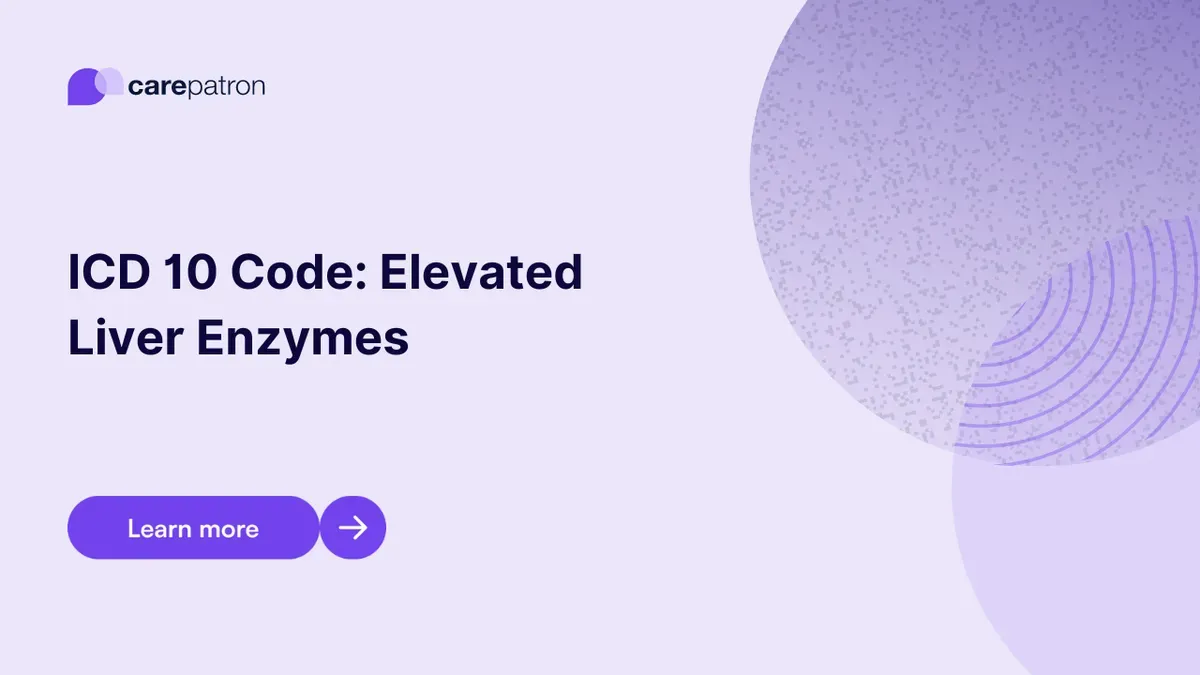
Elevated Liver Enzymes ICD-10-CM Codes
Uncover the ICD-10 codes for Elevated Liver Enzymes. Dive deep into the clinical specifics & ensure accurate coding—your essential guide to liver enzyme coding.
Use Code
EHR and practice management software
Get started for free
*No credit card required
Free
$0/usd
Unlimited clients
Telehealth
1GB of storage
Client portal text
Automated billing and online payments
